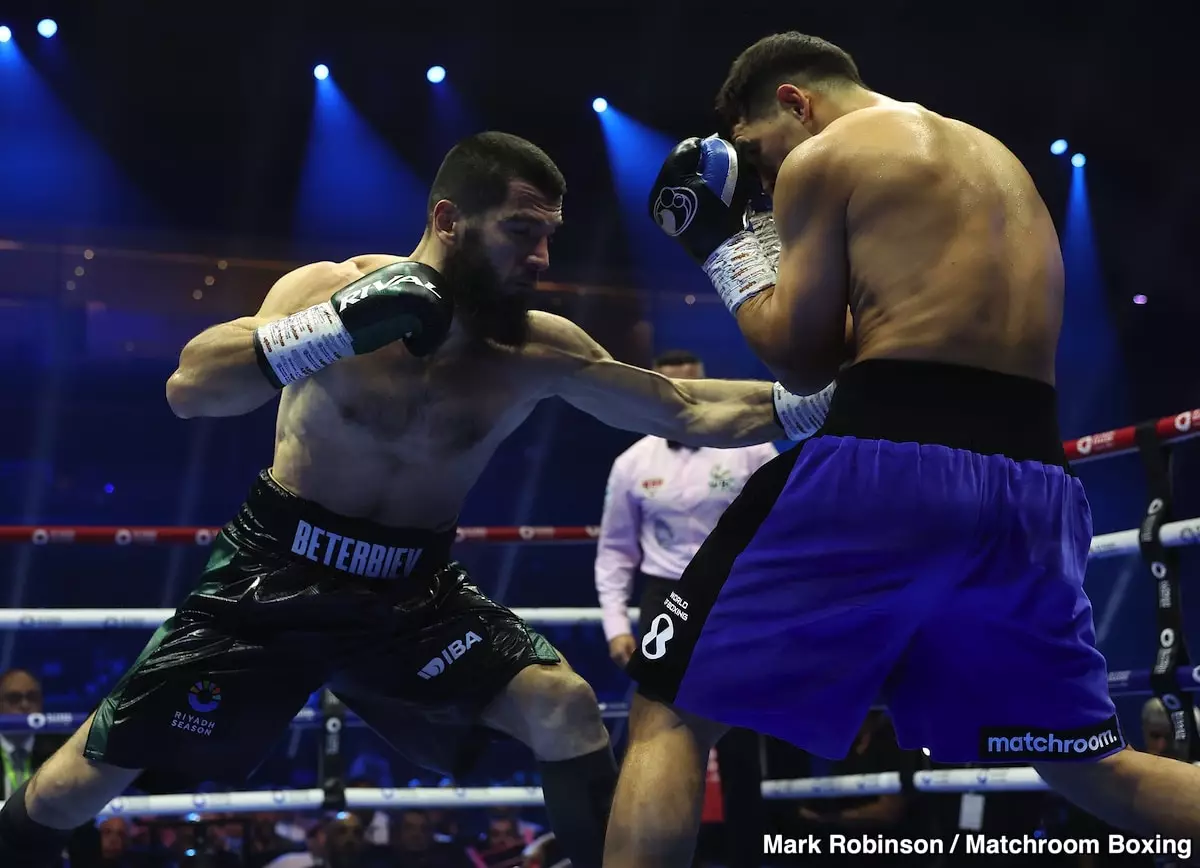In the world of boxing, strategies extend beyond mere training regimens and fight tactics; they encompass psychological ploys that include the timing of bouts against certain opponents. This reality is particularly prevalent when it comes to fighters considering the age and experience of their potential rivals. Recently, former world champion Sergio Mora expressed his thoughts regarding David Benavidez’s potential match against undisputed light heavyweight champion Artur Beterbiev. Mora suggested that Benavidez might be better off waiting until Beterbiev—who is set to turn 40—”ages out.” This raises intriguing questions about the ethics and effectiveness of deliberately timing fights against aging opponents.
Age, in many combat sports, becomes a formidable factor. As fighters progress in their careers, they often face the inevitable wear and tear associated with the physical nature of their profession. Mora’s proposition revolves around a common strategy in boxing: allowing time to erode the skills of a champion before making your move. Historically, many notable boxers have strategically fought their most formidable opponents only when those opponents were considered less of a threat due to age or decline in performance.
Is Aging Out a Smart Strategy?
Benavidez, sporting an impressive record of 29 wins and no losses, will first need to overcome WBA ‘regular’ champion David Morrell. If he succeeds, the implications become significant; a rematch between Beterbiev and Dmitry Bivol looms on the horizon, presumably determining the next great challenger for the light heavyweight throne. Mora likens the concept of “aging out” to a natural law within boxing, a trend visible in the careers of many legendary fighters. This philosophy suggests that waiting for the natural decline of a fighter can yield a higher likelihood of success, especially against a dangerous opponent like Beterbiev, whose fighting style capitalizes on close-range aggression and brute strength.
Yet, this approach can be fraught with moral quandary. Are athletes who rely on this strategy merely being shrewd managers of their careers, or do they risk undermining the sport’s integrity? Critics may argue that such tactics strip the sport of its more laudable virtues, such as courage and honor.
Despite the potential advantages of aging out an opponent, there are undeniable risks involved. Waiting for one’s adversary to decline physically can lead to significant time gaps in preparation and readiness. In an unstable sporting environment like boxing, where shifts in fortune can happen overnight, fighters risk missing out on opportunities if they choose to take too much time. For instance, while Beterbiev ages, he may still maintain his sharpness and prowess, potentially making him more unpredictable rather than less formidable.
Additionally, Mora points out the danger Benavidez faces not just in fighting a champion like Beterbiev, but in transitioning to a higher weight class. This raises questions about whether Benavidez’s skill set is robust enough at 175 pounds—a division populated with hard-hitting, experienced fighters ready to capitalize on any perceived weaknesses.
Benavidez’s long-term strategies must be carefully calibrated, with a significant focus placed on the immediate task ahead—fighting Morrell. Success there is critical for his ambitions against Beterbiev, who even at almost 40, is hailed as one of the most dangerous fighters in the sport today. Mora’s analysis emphasizes the acute need for challengers to treat Beterbiev’s threats with utmost seriousness, allowing for both tactical preparation and mental readiness for the formidable challenge he presents.
Benavidez’s camp must weigh the advice to potentially wait against the benefits of seizing the moment when timing becomes critical. Each fighter carefully considers the toll years and experiences exert on performance within the hypercompetitive landscape of boxing. Ultimately, whether Benavidez chooses to wait or confront Beterbiev sooner will not just define his career but will also navigate the complex intersections of strategy, ethics, and personal ambition in boxing.
As the sport evolves, the nuances of fight strategy will continue to spark debates and discussions, challenging both fighters and fans to reevaluate what it means to pursue greatness within the ring.

